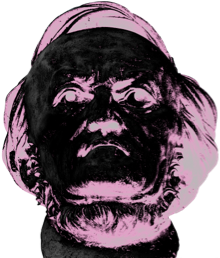If our objective is to provoke the ghost of Richard Wagner with music that he wouldn’t like, there are few 19th-century composers whose music is better suited to this end than that of Eric Alfred Leslie Satie (1866-1925), or, since quirky down-sizing was one of his hallmarks: Erik Satie. Satie was a teenager by the time Das Ring des Nibelungen premiered in Bayreuth, and Paris was already in the throes of Wagner-hysteria with composers like Henri DuParc and Vincent d’Indy imitating the grandiose aesthetic of the German. D’Indy went on to found the Schola Cantorum, which he differentiated from the Paris Conservatory by putting greater emphasis on Baroque and Renaissance traditions. Satie enrolled at the Schola Cantorum in 1905 at the prodigious age of 39, but was more dedicated to rebelling against d’Indy’s traditionalist agenda and the Wagnerian aesthetic than to getting good grades. The chorale prelude to Sports et Divertissements (1914) shows that even in the later stages of his career, Satie had not yet exhausted the catharsis of breaking from the strictures of his alma mater ("I have put into [this chorale] everything I know about Boredom. I dedicate this Chorale to those who do not like me”).
Given their length, their flavor, and their sometimes gentle, sometimes flagrant irreverence, little time needs to be spent elaborating on the anti-Wagnerian aesthetic that drips off of Sports et Divertissements. The one whiff of 19th-century heritage present in this collection is that, along with the accompanying texts and the beautiful illustrations of Charles Martin, Satie intended the work to be equally appreciable from literary, visual, and auditory perspectives - dare we say it, a Gesamtkunstwerk? Nonetheless, the work has a debonaire attitude: the quirky music is accompanied by illustrations which depict the Parisian upper class sporting the latest fashion and enjoying recreational activities. The fact that the impetus for Sports et Divertissements came from the editor of a fashion magazine gives it an explicitly commercial bent that shows a distinctly non-Wagnerian version of what “modernism” can mean. Though it might be against the wishes of some Satie purists, we included recitations of his in-score texts before each miniature. Below are their translations (trans. Pierre-Nicolas Colombat).
Pierre-Nicolas Colombat
January, 2023
Satie - Sports et Divertissements
La Balançoire
C'est mon cœur qui se balance ainsi. Il n'a pas le vertige. Comme il a de petits pieds. Voudra-t-il revenir dans ma poitrine?
Le Water-chute
Si vous avez le cœur solide, vous ne serez pas trop malade. Il vous semblera que vous tombez d'un échafaudage. Vous verrez comme c'est curieux. Attention ! ne changez pas de couleur. Je me sens mal à l'aise. Cela prouve que vous auriez besoin de vous amuser.
La Comédie Italienne
Scaramouche explique les beautés de l'état militaire. On y est fortement malin, dit-il. On fait peur aux civils. Et les galantes aventures ! Et le reste ! Quel beau métier!
Le Bain de mer
"La mer est large, Madame." "En tous cas, elle est assez profonde." Ne vous asseyez pas dans le fond. C'est très humide." "Voici de bonnes vieilles vagues." "Elles sont pleines d'eau." "Vous êtes toute mouillée !" "Oui, Monsieur."
The Swing
It is my heart that is swinging this way. It is not dizzy. My, what small feet it has. Would it like, one day to return into my breast?
The Waterslide
If you have a strong heart, you won’t get too queasy. You will see how curious it is. It will merely seem like you are falling from a scaffolding. Look out! Don’t change color. - I feel unwell … - This only shows that you need to have more fun.
Commedia dell’arte
Scaramouche explains the beauties of the military state. “We are wondrously clever,” says he. “We frighten civilians. And the galant adventures! And the rest! What a wonderful profession!
The Sea Bath
The sea is wide, madame. In any case, it is rather deep. Do not sit in its depths. It is very humid. Here are some nice old waves. They are full of water. You are all wet! - Yes, monsieur.

